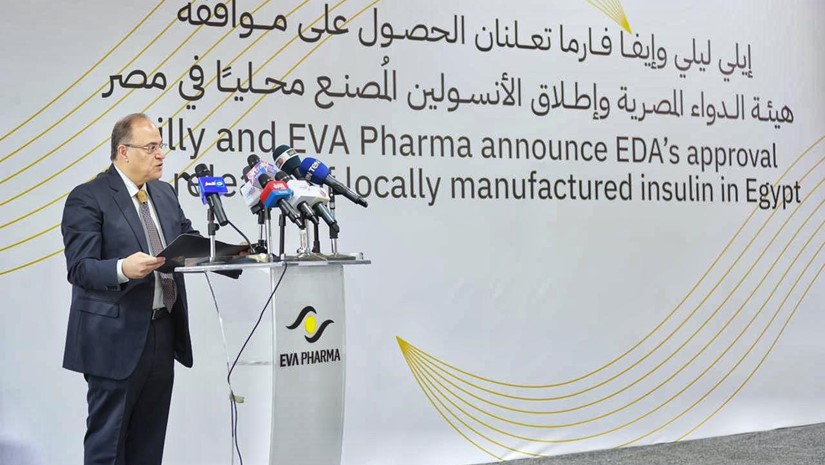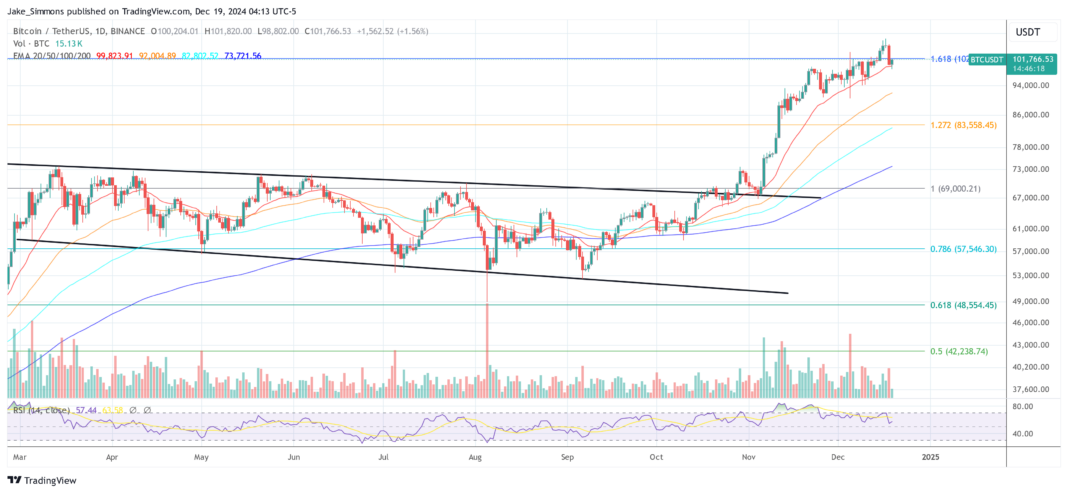Photo Source: Egyptian Drug Authority
The Ministry of Health launched the country’s first locally produced long-acting insulin on 17 December, through a partnership between Egyptian pharmaceutical company Eva Pharma and global giant Eli Lilly and Company.
Health Minister Khaled Abdel-Ghaffar underscored the significance of the moment.
“Egypt is prioritizing the localization of pharmaceutical production,” he stated at the launch event at Eva Pharma’s factory in Giza.
“Our new collaboration with EVA Pharma reflects Lilly’s deep commitment to making equitable and affordable access to insulin a reality for people living with diabetes in low- and middle-income countries,” also said Ilya Yuffa, president of Lilly International.
“This latest initiative from Lilly will empower local manufacturing, finishing, and distribution of quality insulin – in Africa – which will transform communities and make life better for people throughout the continent.”
A Collaborative Effort for Affordable Treatment
The journey to locally produced insulin began in 2022, when Eva Pharma and Eli Lilly forged a collaboration focused on delivering affordable medication to low- and middle-income countries. Eli Lilly provides the active ingredient and shares technology pro bono, enabling Eva Pharma to manufacture and package insulin locally.
In a joint statement, the partners set an ambitious goal: to supply affordable, high-quality insulin to over a million patients annually by 2030.
For Egyptians struggling with rising healthcare costs, this initiative offers a glimmer of hope. Currently, one vial of short-acting insulin can cost as low as 75 EGP (USD 1.47), while a vial of long-acting insulin can cost as low as 174 EGP (USD 3.42).
Health Meets Economic Strategy
Beyond improving patient access, local insulin production makes economic sense. Ali Al-Ghamrawy, head of the Egyptian Drug Authority, highlighted the financial benefits. In 2023 alone, Egypt spent USD 30 million (EGP 1,526,934,000) on insulin imports. By ramping up domestic production, the country can cut costs and secure its supply chain.
Eva Pharma’s facility, with the capacity to produce up to 100 million insulin vials annually, is poised to stabilize the local market and reduce dependence on imports. As Abdel-Ghaffar noted, “Localizing drug production is national security.”
Additionally, Abdel-Ghaffar painted a sobering picture: Diabetes cases in Egypt are expected to rise to 13 million by 2030 and 20 million by 2045. This new initiative aims to meet that growing need with locally produced solutions.


